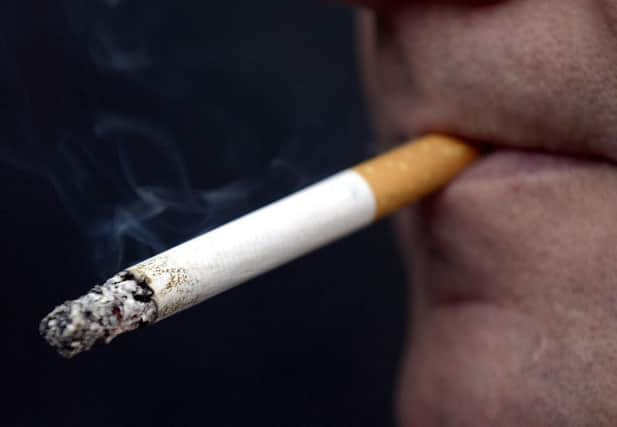DERBYSHIRE: Stop smoking call from health chiefs


The gauntlet was thrown down this week by NHS Hardwick Clinical Commissioning Group (CCG), which is championing a new drop-in clinic being run by Derbyshire Community Health Services NHS Trust’s stop smoking team.
Sessions will take place each Tuesday evening during January at Alfreton Primary Care Centre. New starters are asked to arrive in time to start their first session at 6.15pm, after which sessions will begin at 5.30pm.
Advertisement
Hide AdAdvertisement
Hide AdMeanwhile, a drop-in clinic will start on Friday 24th January in Alfreton Indoor Market, running from 10am to 2pm.The clinic will run for around seven weeks at first but may be extended if take-up is good.
Tina Jones, Tobacco Control Programme Manager for Derbyshire Community Health Services NHS Trust, said: “It’s really quick and easy just to drop in and, to make it even easier, your adviser can sort you out with a free stop smoking product at the session.”
Smokers are four times more likely to quit for good with the help of a trained stop smoking adviser and by using a stop smoking product.
As well as the clinic, many local community pharmacies have trained advisers of their own. Just call in to pick up a quit kit or to find out how you can become smoke free in 2014.
Advertisement
Hide AdAdvertisement
Hide AdTina added: “Derbyshire County Stop Smoking Service helped nearly 5,000 people to stop smoking last year and they could help you in 2014. Why not make stopping smoking your New Year’s Resolution? It doesn’t matter if you have tried before and didn’t quite make it, most people need several attempts before they are totally smoke free.”
Cigarette smoke contains more than 4,000 chemicals including carbon monoxide and nicotine, both of which place a strain on your heart by making it work faster. Every time you smoke, blood that’s thick and dirty with toxins circulates through your body in seconds, increasing your chances of a heart attack or stroke.
Smoking killed 1,326 Derbyshire people last year while half of all long-term smokers will die from their addiction.
But the good news is that, after only one year of not smoking, your risk of dying from heart disease is reduced by half and, after 15 years as a non-smoker, your risk is similar to that of someone who has never smoked. After five years of being smoke free, your risk of a stroke will be the same as that a non-smoker.
Advertisement
Hide AdAdvertisement
Hide AdLocal stop-smoking services are complemented by the NHS’ national Smokefree service which has been relaunched for the New Year. Support includes a free Quit Kit full of practical and engaging tools to help smokers quit step by step in the comfort of their own home. More than two million people have already used the kit.
Dr Steve Lloyd, Chair of NHS Hardwick CCG, said: “With lots of people making New Year Resolutions, there has never been a better time for smokers worried about their habit to finally grasp the nettle and quit for good.
“If you’re sick of worrying about the harm that smoking is doing to you, then why not visit www.nhs.uk and click the prominent Smokefree link to find out about all the free help available?
“Every cigarette you smoke causes real harm to your health but the good news is that your body starts to recover as soon as you stop.
Advertisement
Hide AdAdvertisement
Hide Ad“Your family means the world to you – and it will mean the world to them when you quit. They won’t have to keep worrying about you, and you’ll be sparing them the harmful effects of second-hand smoke.
“And every cigarette you don’t smoke will save you money. Most people who quit save around £150 a month – that’s nearly £2,000 a year going up in smoke.”
Lots of people have already stopped smoking with help from Smokefree.
Dr Lloyd added: “Now is the time to stub it out – for your health, for your family and to save money.”
For more information on stopping smoking, call 01246 868245 or 0800 085 2299 (free from a landline) or visit www.derbyshirecountystopsmokingservice.nhs.uk.